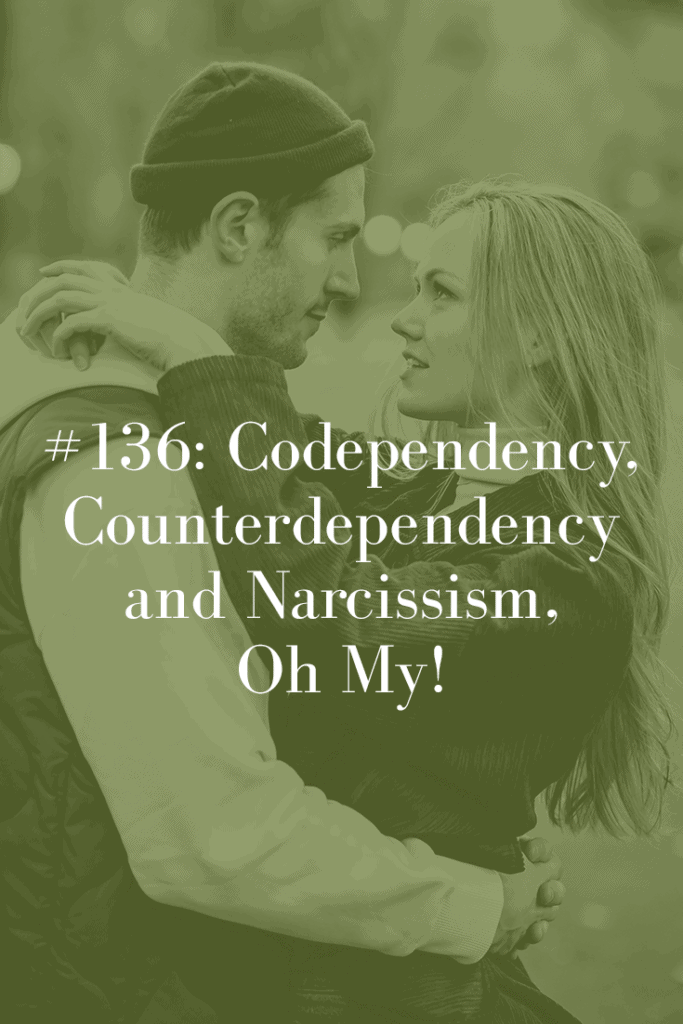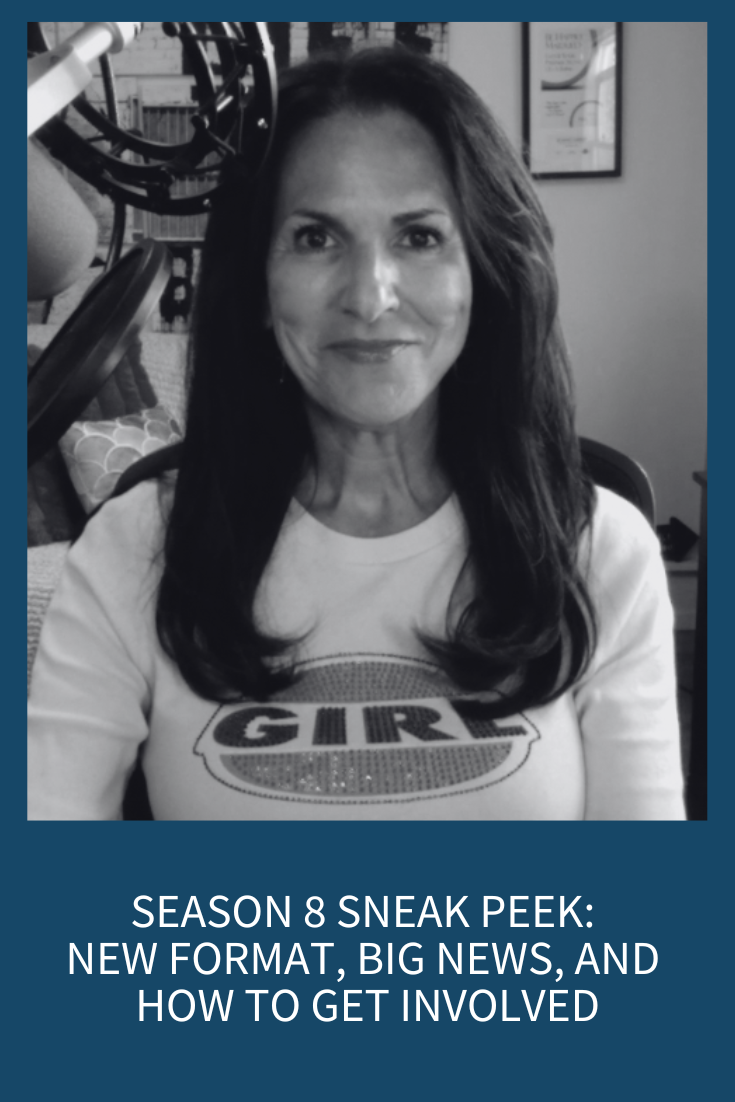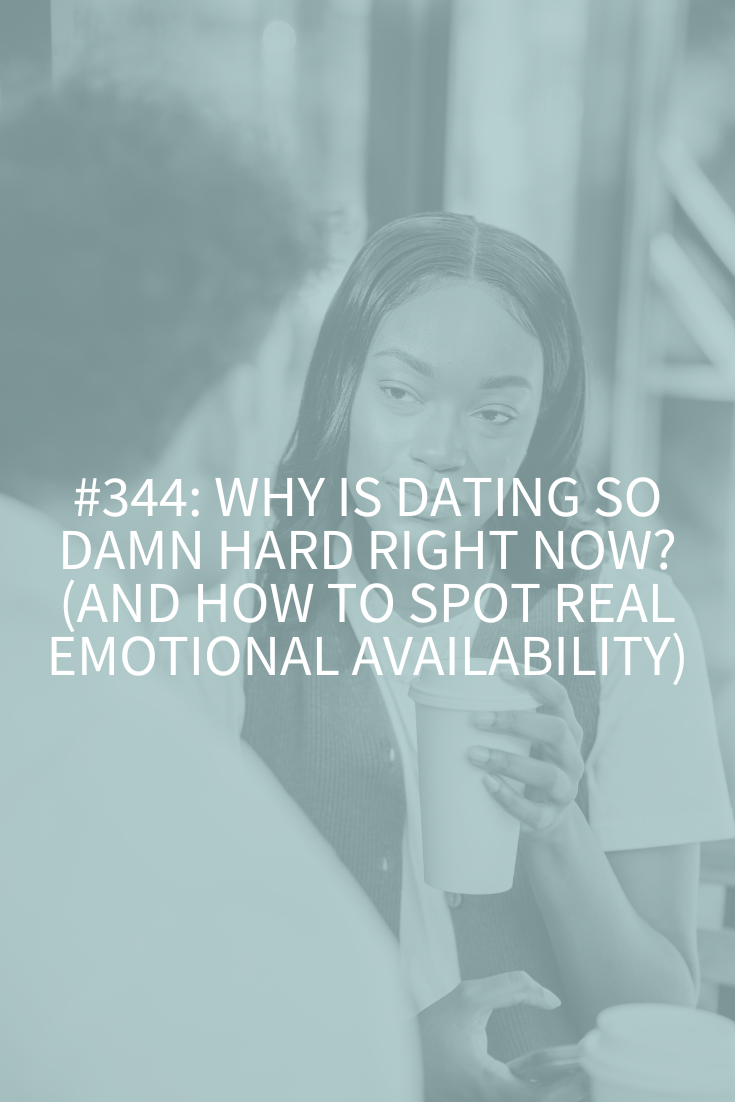
“What the hell is counter-dependency?” That was literally my response when I was asked to cover this topic for the podcast. In my over 35 years in the field, I’d never heard the term but, once I started my deep dive into learning everything about it, I realized that I had to do write about it to explain what it is and how it relates to codependency and narcissism. So, get yourself a cup of coffee and buckle up because today you’re going to get a clear picture of what all this is and my top 3 tips for making it all go away!
Let’s Start with Codependency
- Codependents get their emotional lives fulfilled through others.
- If someone in their life is upset, they’re upset.
- Disappointing other people is their kryptonite and will keep them up all night wondering what they did wrong and how to fix it!
- Codependents become overly focused on other people’s needs instead of their own and generally don’t even know what their own needs really are.
- If you ask others for help easily, you’re not codependent.
Counter-Dependence
Where a codependent is overly focused on others, the counter-dependent is focused on themselves and their own needs. The counter-dependent is someone who avoids closeness and intimacy. They might be in a relationship, but they keep their own counsel and really aren’t looking to deeply bond with anyone else.
Some other notable traits include rigid boundaries or very black and white thinking, self-centeredness, and difficulty relaxing so they might be addicted to things like work, exercise or “doing.” (I guess if you’re always on the run, it’s hard for people to catch you).
Oh That Narcissism
According to the DSM, the most important characteristics of Narcissistic Personality Disorder are grandiosity, seeking excessive admiration and a lack of empathy. These are not the central themes in someone with counter-dependence. There’s a different motivation behind the behavior and, in my opinion, it’s much more treatable than narcissism.
But Why, Abby?
Before we go further, I need to say a word about why people (aka: you) are any of these. Codependency, counter-dependency and narcissism, for the most part (aside from trauma later in life), result from how our early childhood was experienced. I say experienced because who you were as a person coming into this world is different from who someone else is coming into this world. We’re born with certain temperaments and into families at different times in their evolution, we’ve got different genders, and all kinds of other factors that make each person’s childhood slightly different, even when they’re raised in the same family. So how your mom acted as a parent might not have affected your older brother but might have had a negative impact on you.
Are You Anxiously Attached?
Anxiously attached people would generally be considered “high maintenance.” They need a lot of attention and the adjectives that usually come to mind are things like “clingy or needy.” As adults, they look for high levels of emotional closeness, approval and communication from their partners, friends, children, family and coworkers, and can become overly dependent on others.
Now, there’s also a kind of narcissist who fits in here and that’s the vulnerable narcissist. The vulnerable narcissist can often seem insecure and will look for reassurance in their relationships. They’re not codependent because they focus on themselves and their own needs first – and they will demand that from you. But, they can seem codependent because they can get very attached and become consumed with their partners or jobs in their efforts for constant validation.
Or Maybe You’re Avoidantly Attached
Avoidant adults are all about putting distance between themselves and others. This can be through Type A behavior, overscheduling or being a workaholic. They can seem indifferent and unaffected even in a crazy relationship. This is because, at their core, they keep their emotions somewhat closed off and don’t allow themselves to be truly vulnerable, intimate or emotionally close.
You can see how counter-dependents fit this bill to a tee and so do grandiose narcissists, which is who people typically think of when they hear that word – someone who cares only about themselves and lacks empathy.
So, Now What?!
My recommendations are that you work on the base issue which is getting more securely attached! So, here are my 3 tips:
1. Self-Awareness. I know, I know. You’re sick and tired of me talking about self-awareness but, guess what!?! You won’t be able to make any of these changes if you’re not aware in your moments that you’re acting in old defeating behaviors.
2. Start Identifying and Saying What You Need. It’s time to learn how to say what you really need. No passive-aggressive bullshit, no walking away, and no antics. It’s time to talk about real feelings and notice your discomfort in asking for help in a direct way.
3. Notice Your Feelings. Notice what emotions you feel when you experience insecurity with others. Do you get anxious and clingy with your friends? Do you get angry and resentful at your boss? Are you jealous or distrustful with your partner? You’ve got a “feeling” pattern and it’s important to identify it and then redirect yourself in those moments.
OK, I lied – there’s a fourth tip I’d really like you to consider:
4. You’re going to have to work on seeing what you haven’t seen before and therapy is the best way to do that. You’re basically a fish who doesn’t know it’s wet and having a therapist give you feedback about what you’re doing and your subconscious motivations is the first step in changing how you react in your relationships. If you’re anxiously attached, you likely need to work on self-esteem. For those who are more avoidantly attached, it’s about learning to be vulnerable and connecting to the people in your life with empathy and compassion.
There’s almost nothing better for you than taking a few minutes each day to set your day on the right track, so I’ve created this free Meditation Starter Kit. You just need 3 minutes to start your day with positive momentum!
RESOURCES:
How Attached Are You to Your Partner?
RESEARCH:
DSM-5: Diagnostic and Statistical Manual of Mental Disorders, 5th Edition












